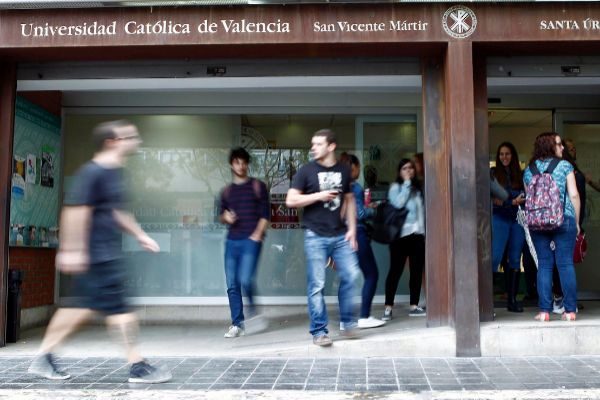- Ribó will propose charging the IBI to religious places that are not of worship or assistance
- Valencia's plan to collect three million in taxes from the Church
It was one of the star measures of the last legislature: to charge the IBI (Real Estate Tax) to all the buildings of the Church that were dedicated to lucrative uses . That is, all those that are used for commercial or business purposes. And now that the second term begins, the Valencia City Council, headed by Joan Ribó , has not given up its efforts.
In fact, technicians from the Department of the Treasury are tracking all the property owned by the Church and other confessions in the municipality to determine which are not intended for religious, social or welfare purposes and to be able to send them the corresponding IBI receipt.
The session, for the moment, has only issued five receipts to real estate of the Church whose lucrative use is amply demonstrated, always according to the same sources, although none of them has been made effective.
The problem that has been found in the Treasury with the collection of this tax is that many of the parcels registered in the cadastre in the name of different religious congregations do not specify their use and officials must establish with guarantees that they are not cult buildings, welfare or of social uses before sending any notification.
To do this, as confirmed by the municipal sources consulted, a team of technicians are thoroughly analyzing the records to determine which buildings of all those that the Church has in the city are likely to face the municipal tax . Although it is a cumbersome process, since it is necessary to verify in situ that the properties are destined for lucrative uses, the intention of the department directed by the socialist Ramón Vilar is that the final list is complete before the end of the year.
Once with this document, the City Council will establish a calendar to start rotating the appropriate receipts . In principle, the estimating calculation made by the technicians after an initial analysis of the data is that the town hall can enter about three million euros as IBI to religious buildings with commercial activities, whether it be a private university, private hospitals, shops or Even parking.
Despite the availability of a document that specifies all the assets belonging to any religious confession that are framed within the precepts determined to collect the municipal tax, the municipality will not make any provision for extra income in the next budgets .
In the Department of Finance are aware of the difficulty of collecting this tax after years without entering any amount for the existence of the Patronage Law, a regulation to which the different confessions are accepted to avoid paying any tax. However, the session uses a European judgment in which it is considered "unfair competition" that the assets assigned to the Church and are destined for profit are not subject to any tax burden like any other economic activity.
Thus, according to this argument, the universities of the Church would have an advantage over any other private center, since they would be exempt from any tax, not just the IBI. In spite of everything, in the session they believe that there will be legal resistance from the Church against the payment of the tax.
Within the calendar of collection of this type of religious establishments for commercial purposes, what the City Council has set in motion is the collection of Icio (Construction, Installations and Works Tax) . Vilar confirmed that receipts for this tax have already been released.
According to the criteria of The Trust Project
Know more- Joan Ribó
- Valencia
- Taxes
- Valencian Community
ValenciaJoan Ribó paralyzes the rate for electric scooters and scooters for rent
SocietyA subsidiary of Cabify challenges the City Council and deploys its electric scooters for rent in Valencia
EconomyJoan Ribó is absent from the Council of the Port in the midst of the crisis on enlargement

